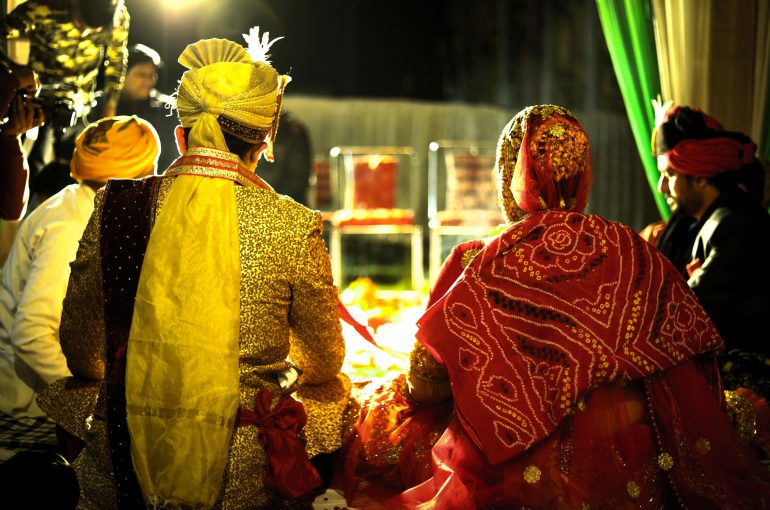Supreme Court Dissolves Marriage on Grounds of Irretrievable Breakdown: Ramanuj Kumar vs. Priyanka (2025)
A Three Judge Bench comprising of Judges Justice Vikram Nath, Justice Sanjay Karol, Justice Saneep Mehta passed a judgment dated April 22,2025 in the case of Ramanuj Kumar vs Priyanka Civil Appeal No. 14276 of 2024wherein the Supreme Court held that if the marriage had reached a point of no return due to prolonged hostility, deep seated bitterness and mutual allegations of a grave and serious nature then decree of irretrievable breakdown of marriage can be granted.
The present Appeal arose from the Judgment dated 28.06.2023 of Jharkhand High CourtWherein Appellant/Husband’s appeal was dismissed affirming the Judgment of Family Court which dismissed the Appellant’s petition for dissolution of marriage under Section 13 (1) (ia)[1] and (iii)[2] of Hindu Marriage Act, 1955.
Facts of the Case:
The Appellant and the Respondent got married on November 24, 2012. They have two children from their marriage. The Respondent filed Complaint case No. 1980 of 2014 in the Trial Courtalleging mental and physical cruelty against the Appellant and his parents under Section 498 A of Indian Penal Code 1860 and Section 3 and 4 of the Dowry Prohibition Act, 1961.
The allegations made against the Respondent involved verbal abuse. The Respondent refuted these claims and asserted that the Appellant had subjected her to mental and physical cruelty. On July 2, 2019, the Family Court rejected the Appellant’s request for divorce on the pretext of reconciliation between the parties.
Findings of the High Court:
The High Court rejected the appeal on 28.06.2023, stating that the couple lived together until March 2014 and that the wife was expecting their second child when the suit was filed, thus a divorce could not be granted.
Arguments on behalf of Appellants:
The Appellant is now requesting the dissolution of marriage based on irretrievable breakdown. The Appellant asserted that the couple has been living apart for more than eleven years. Their relationship has been severely harmed by ongoing hostility, entrenched bitterness, and serious mutual accusations. He contended that the marriage has come to an irreversible state with no chance for reconciliation or revival.
Arguments on behalf of Respondents:
The Respondent highlighted that their second child, born in November 2014, was diagnosed with cerebral palsy and required constant care. Tragically, the child passed away a few years later. She further stated that she is employed as an Agricultural Coordinator with the Bihar State Government and, due to her professional responsibilities, lacks the time, resources, and emotional bandwidth to engage in custody or visitation-related litigation.
Observations of the Hon’ble Supreme Court:
The Supreme Court deemed this case appropriate for exercising its powers under Article 142 of the Constitution to ensure complete justice. The Court acknowledged that the marriage had reached an irreparable state, with no hope of reconciliation, as evidenced by long-standing separation and failed attempts to mend the relationship. It was noted that both parties had shown no interest in reviving the marital bond. Consequently, the Court granted a decree of divorce on the ground of irretrievable breakdown of marriage and also allowed the Respondent visitation rights, enabling her to slowly reconnect with her daughter.
Conclusion
The Supreme Court’s decision in Ramanuj Kumar vs. Priyanka underscores the evolving judicial approach towards matrimonial disputes where emotional and practical realities are given due recognition. By invoking Article 142 to dissolve a marriage that had long ceased to function as a genuine partnership, the Court demonstrated its commitment to ensuring substantive justice over procedural rigidity. This judgment sets a significant precedent in acknowledging that a marriage devoid of mutual respect, companionship, and cohabitation may warrant legal closure, even in the absence of traditional grounds for divorce. It also reflects the judiciary’s sensitivity towards the emotional well-being of the parties involved, prioritizing human dignity and the futility of prolonging irreparable relationships.
Trisha Saxena
Senior Legal Associate
The Indian Lawyer and Allied Services
Please log on to our YouTube channel, The Indian Lawyer Legal Tips, to learn about various aspects of the law. Our latest video, titled “What is an FIR? | How to File an FIR” in India Legal Tips can be viewed at the link below:
https://www.youtube.com/watch?v=iQapMJ6-SNQ&t=1s
[1]Section 13 (1) (ia) of Hindu Marriage Act lays downDivorce on the ground that any party has, after the solemnisation of the marriage, treated the petitioner with cruelty
[2]Section 13 (1) (iii) of Hindu Marriage Act lays down Divorce on the ground that the other party has been incurably of unsound mind, or has been suffering continuously or intermittently from mental disorder of such a kind and to such an extent that the petitioner cannot reasonably be expected to live with the respondent.





































Leave a Reply